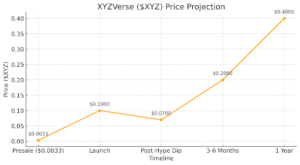
-
Bitcoin fell nearly 6% as global markets reacted to President Trump’s broad tariff announcement.
-
U.S. stock indices posted sharp losses, with the Dow dropping 1,570 points and tech stocks hit hardest.
-
Analysts note an increasing relationship between crypto and equities.
Bitcoin and other top cryptocurrencies saw a sharp decline following President Donald Trump’s wide-ranging tariff announcement on April 2, 2025. The administration announced a 10% duty on all imports, with higher rates for select countries—34% for Chinese goods, 20% for European Union imports, and 24% for products from Japan.
The move, intended to roll back what Trump called “unfair trade practices,” spooked investors around the world and sparked worries of a full-blown trade war.
U.S. stock indices posted their sharpest losses of the year, with the Dow Jones Industrial Average dropping 1,570 points (3.7%) to close at 40,735.53. The S&P 500 and Nasdaq Composite fell 4.04% and 5.20%, respectively.
Major tech firms, including Apple, Amazon, and Nvidia, all saw declines exceeding 6%.
Equity markets abroad also reacted negatively. Japanese Nikkei 225 futures shed nearly 2%, while European bourses reported heavy losses following growing concerns over retaliatory trade measures and global economic disruption.

Crypto Markets Follow General Selloff
Similar to the stock market, the cryptocurrency market was not spared in the global decline. Bitcoin dropped nearly 6%, trading just under $82,000 by market close. Ether and other major cryptocurrencies recorded similar losses. The drop reflects an increasingly similar relationship between digital assets and traditional risk markets during macroeconomic shocks.
“Crypto assets are behaving more like high-beta equities than independent hedges,” said a strategist at Janus Henderson. “Events like this reinforce the perception that digital assets are not isolated from global financial dynamics.”
While Bitcoin’s long-term fundamentals remain a topic of debate, its short-term price action continues to follow investor sentiment. Some analysts suggest that a sustained period of protectionist trade policy could weaken confidence in fiat currencies, which could potentially increase demand for decentralized alternatives like Bitcoin. Others worry that further volatility will suppress investor appetite for risky assets in general.

Global Leaders Disagree and Criticize Trump’s Tariff
International leaders were quick to respond. Italian Prime Minister Giorgia Meloni called the new tariffs on EU goods “wrong” and urged for renewed diplomatic engagement. Australian Prime Minister Anthony Albanese criticized the 10% tariff on Australian imports as unjustified, though he stopped short of announcing any countermeasures.
Both China and Japan have not yet issued formal responses but are expected to take retaliatory steps.
With volatility to continue, equity and crypto markets may stay closely tied in the coming weeks. Traders and investors are watching closely for signs of easing tensions or additional protectionist actions by Washington that can further reshape the global economic landscape.
The post Bitcoin Declines Alongside Equities Following Trump’s Tariff Announcement appeared first on ETHNews.


